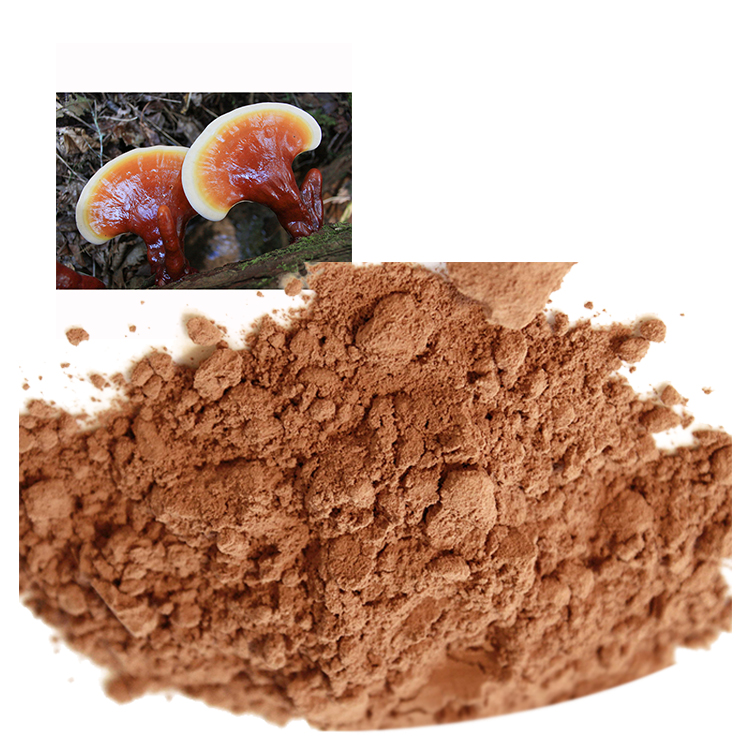For thousands of years, Traditional Chinese Medicine (TCM) has harnessed the natural world for healing, with Ganoderma—known as Lingzhi—being one of its most revered ingredients. Today, the intersection of ancient herbal wisdom and modern biomedical research is vividly illustrated in the story of Ganoderma extract. This article explores the deep historical roots, traditional applications, and the contemporary scientific validation of Ganoderma lucidum, emphasizing how ancient knowledge aligns with modern clinical science.
Ganoderma in the Foundations of Traditional Chinese Medicine
Lingzhi, the Chinese name for Ganoderma lucidum, has been referenced in TCM texts for over two millennia, including the seminal “Shennong Ben Cao Jing.” Traditionally, Lingzhi extract was considered a “superior herb,” believed to promote longevity, enhance qi (vital energy), strengthen immunity, and support overall well-being. Unlike many other medicinal mushrooms, Lingzhi was reserved for royalty and scholars due to its rarity and perceived potency.
TCM practitioners attribute a broad range of effects to Ganoderma, from calming the spirit and nourishing the heart to tonifying the lungs and supporting liver function. Lingzhi is often used in decoctions, powders, or as part of complex herbal formulas, frequently in combination with other botanicals to enhance efficacy and minimize potential side effects.
Traditional Applications: Clinical and Preventive Uses
In classical TCM, Ganoderma extract was prescribed for conditions such as insomnia, cough, asthma, palpitations, and general debility. The underlying principle was not merely symptom management, but the restoration of internal balance and harmony. As TCM emphasizes personalized treatment, Lingzhi’s use was tailored to the patient’s constitution, patterns of disharmony, and even emotional state.
Beyond direct treatment, Lingzhi was also used for disease prevention and health preservation, a reflection of the TCM concept that maintaining wellness is as important as curing illness. In modern China and across East Asia, Reishi mushroom extract remains a common component in health tonics and preventive medicine, symbolizing the continuity of tradition.
Modern Science: Unraveling the Bioactive Complexity
Over the past several decades, researchers have sought to understand the mechanisms behind Ganoderma’s legendary reputation. Modern science has identified a range of bioactive compounds in Ganoderma lucidum extract, including triterpenoids, polysaccharides, peptidoglycans, and sterols. These constituents have been shown in laboratory and animal studies to exert a wide variety of pharmacological actions: immunomodulation, anti-inflammation, antioxidant protection, liver protection, and anti-tumor activities.
One of the most exciting research areas is the effect of Ganoderma extract on immune regulation. Studies have found that certain polysaccharides can enhance the activity of macrophages, natural killer cells, and T lymphocytes, key players in immune defense. Triterpenoids have been investigated for their anti-inflammatory and liver-protective effects, aligning with TCM’s use of Lingzhi for both internal harmony and organ health.
Bridging the Gap: Clinical Evidence and Real-World Use
Despite promising preclinical findings, clinical evidence in humans is still evolving. Small-scale trials have reported benefits such as improved immune parameters, reduced fatigue, and better quality of life for individuals with chronic illnesses. However, large, well-designed clinical trials are still needed to confirm efficacy and determine optimal dosing.
Healthcare providers integrating TCM and modern medicine often use Reishi mushroom extract as an adjunct to conventional care—particularly in chronic diseases and as a general tonic. There is a growing consensus that while Ganoderma is not a replacement for evidence-based medicine, it can complement standard therapies when used appropriately and under medical supervision.
Safety, Quality, and Modern Challenges
One area where ancient wisdom and modern regulation meet is in the importance of quality control. In traditional practice, the source and preparation of Lingzhi were carefully controlled, as impurities or misidentification could compromise safety. Today, standardized Ganoderma extract products must be verified for purity, active ingredient content, and absence of contaminants such as heavy metals or pesticides.
Most adverse events related to Reishi mushroom extract are mild—such as digestive upset or skin rashes—and occur at high doses or with low-quality products. Patients are encouraged to consult healthcare professionals familiar with both TCM and modern pharmacology to ensure safe and effective use.
The Future: Integrative and Personalized Medicine
The story of Ganoderma extract exemplifies the growing field of integrative medicine, which seeks to harmonize traditional practices with modern evidence. Increasing collaboration between TCM practitioners, biomedical researchers, and clinicians is leading to a more comprehensive understanding of health—one that values both ancient wisdom and scientific rigor.
Personalized medicine, a cornerstone of TCM, is being rediscovered in the era of genomics and precision health. Researchers are beginning to investigate how individual genetic profiles may influence responses to Ganoderma lucidum extract, potentially leading to more tailored and effective therapies.
Conclusion
The relationship between Ganoderma extract and Traditional Chinese Medicine is a testament to the enduring value of ancient knowledge and the promise of modern science. Lingzhi, once reserved for emperors, now benefits patients worldwide as both a symbol of longevity and a focus of cutting-edge research. As science continues to explore its potential, Ganoderma lucidum extract serves as a bridge—connecting tradition with innovation, and holistic care with evidence-based practice.
Read More:
Key Considerations for Controlling Residual Solvents and Heavy Metals in Ganoderma Raw Materials
Why Global Wellness Brands Are Seeking Organic Mushroom Powder OEM Partners
Hangzhou Molai Biotech Co., Ltd has supply capacity 1200+ tons per year for mushroom powders and extracts, including the mushroom mycelium from modern technology of Deeply Liquid Fermentation and fruiting bodies from the grown real mushrooms to meet the different markets.
Hangzhou Molai Biotech Co., Ltd supplies the products both in Powders and Extracts for commercial using worldwidely, such as Cordyceps Sinensis, Cordyceps Militaris, Maitake Mushroom, Lion’s Mane Mushroom, Turkey Tail Mushroom, Reishi Mushroom, Chaga Mushroom etc.
We offer OEM and ODM services, could extract the products according to your special requirements, process the powders/extracts into Capsules, Tablets, Small Bags, Mushroom Bars, Mushroom Coffee etc.
Organic Lion's Mane Mushroom Extract
Organic Reishi Mushroom Extract
Organic Cordyceps Militaris Extract
Organic Turkey Tail Mushroom Extract
Organic Chaga Mushroom Extract
Organic Shiitake Mushroom Extract
Organic Maitake Mushroom Extract
Organic Tremella Mushroom Extract






